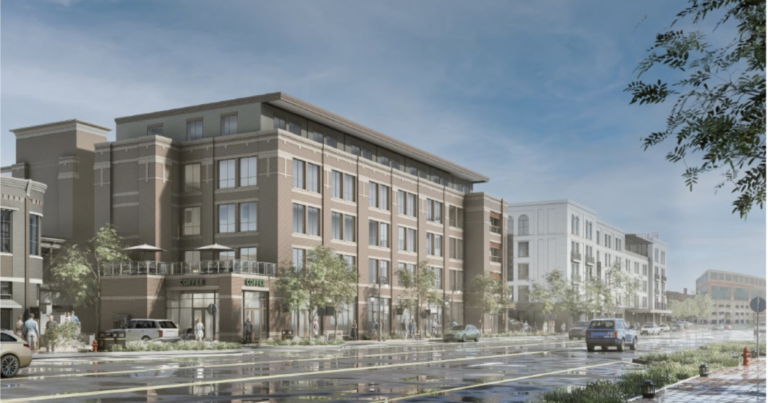A series of major developments long discussed between Beacon Health System, the City of South Bend and the Great Lakes Capital are officially moving forward.
On Thursday, the City of South Bend's Redevelopment Commission unanimously approved a $150 million project that the city is calling the Madison Lifestyle District.
The development area will include extensive construction along Michigan Avenue two blocks south of Memorial Hospital. In place of surface parking, the project calls for 240 residential units, a 100-bed hotel, and 40,000 feet of retail space.
“This is a transformative project. It will help foster hundreds of good-paying jobs and spur a lot of investment,” said South Bend Mayor James Mueller.
Mueller likened the Madison area to South Bend coming full circle after decades of urban blight following the collapse of the Studebaker manufacturing industry.
“All of that happened, including the loss of downtown buildings. Here we go back to urban development and making the most of prime real estate in the heart of the city,” he said.
Project details
This new initiative includes a series of interconnected construction projects, all fueled by Beacon's new $230 million investment in a new patient tower.
Beacon is privately funding all of its projects, and Memorial Hospital President Larry Tracy said the initiative will create nearly 500 new jobs and bring more people to South Bend for treatment. He said there is a high possibility that they will gather in central areas.
“Having a hotel so close to our campus is very reassuring to be close to their loved ones while they are receiving care,” Tracy said.
As a way to meet the current and anticipated housing needs brought by Beacon's new workforce, South Bend partnered with Great Lakes Capital to develop the Madison neighborhood.
Great Lakes Capital is already heavily involved in the area with its Grandview development off Gumwood Road in Granger, and company principal Audra Sieracki said housing is the cornerstone of the developer's investment.
“We feel that housing is key to this Madison lifestyle district development,” Sieracki said.
Of the 240 homes, at least 20% will be marked as workforce housing in terms of rental value.
Great Lakes Capital is buying the land from Beacon for $1 and now needs to invest at least $102 million to develop the property. The city is contributing $24 million in City Council-approved bonds, and the state's READI grant is contributing just under $12 million.
As stipulated in separate agreements with two private entities, the city is committed to constructing two public parking lots totaling 925 spaces, 300 of which will be reserved for Beacon staff. will be secured. While some construction on the parking lot could begin this year, the majority of site and construction for the new mixed-use development is targeted for 2025 and 2026.
The ripple effects of this massive deal will change the landscape of downtown South Bend beyond the construction site.
As part of the deal approved Thursday, the city is paying Beacon $4 million for the Layton Plaza building on Main Street. The hospital plans to move its physical therapy operations out of that space next year.
The city of South Bend also plans to purchase the Wayne Street parking lot from Great Lakes Capital for $2.75 million, which Caleb Bauer, the city's community investment director, said will allow Great Lakes to build large-scale developments north of downtown. He said this is to allow funds to be focused on projects.
The northern construction block could be completed by 2026, but the entire project likely won't be completed until 2029. This year, the city plans to demolish the nearby South Bend Medical Foundation building off Lafayette Boulevard to make way for more parking. Other on-site preparation work.
Redevelopment committee members had no questions about the deal. Council member Troy Warner, a member of the committee, said city officials have been communicating about the project for several months.
“This is really exciting. This is historic,” Warner said. “I think you can really see the domino effect of the return to the roaring '20s in terms of the growth of the city of South Bend.”


